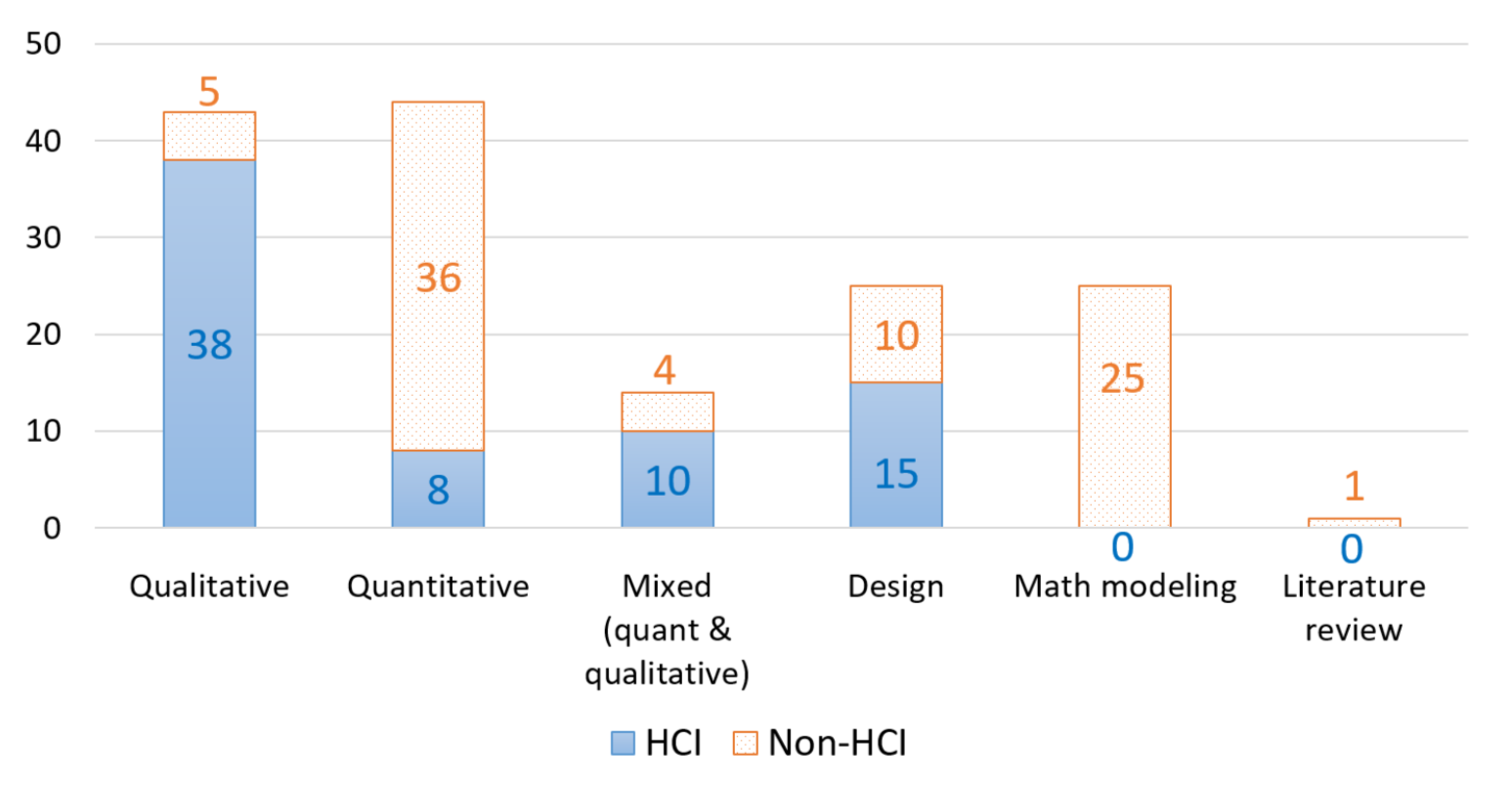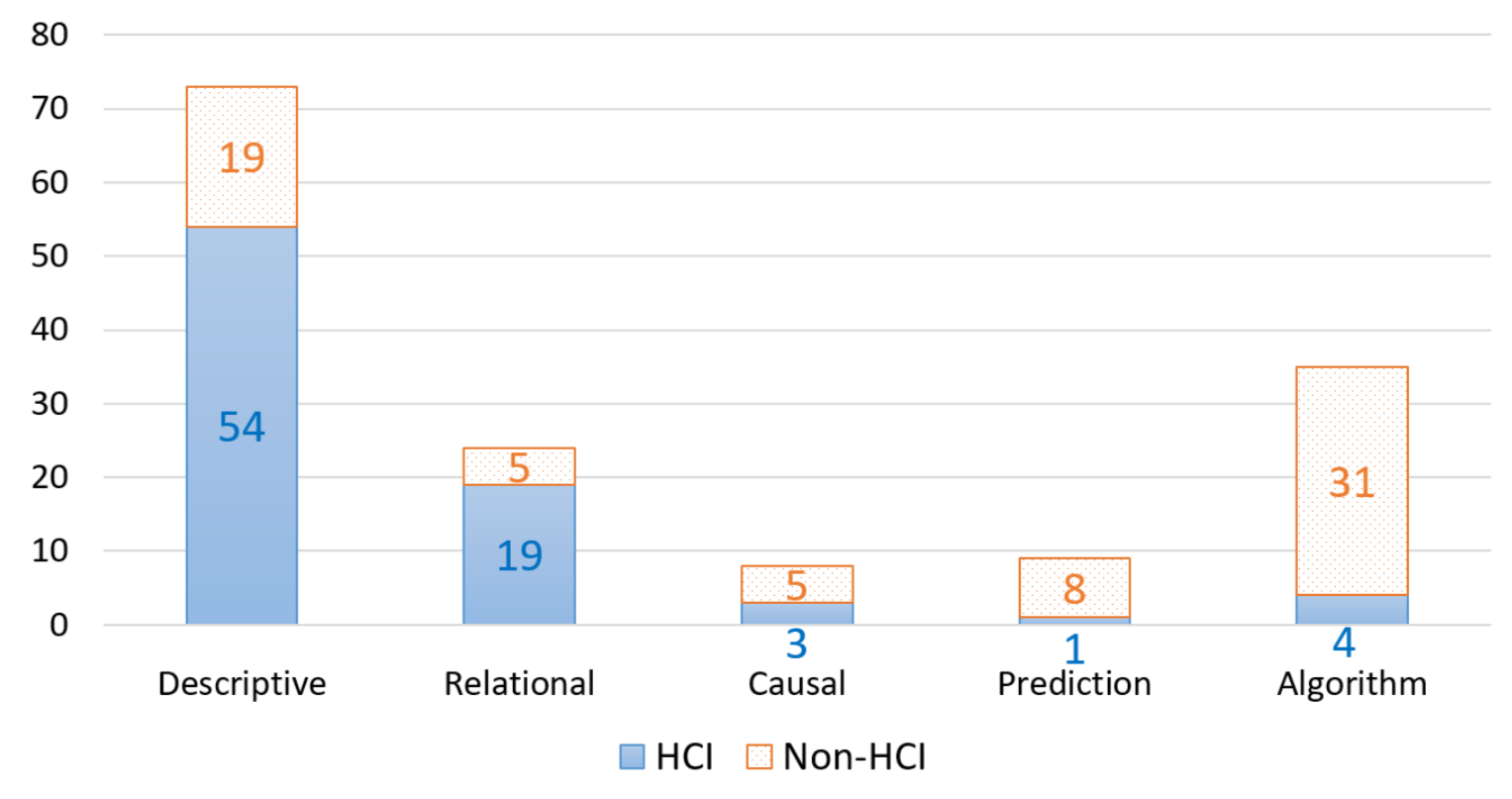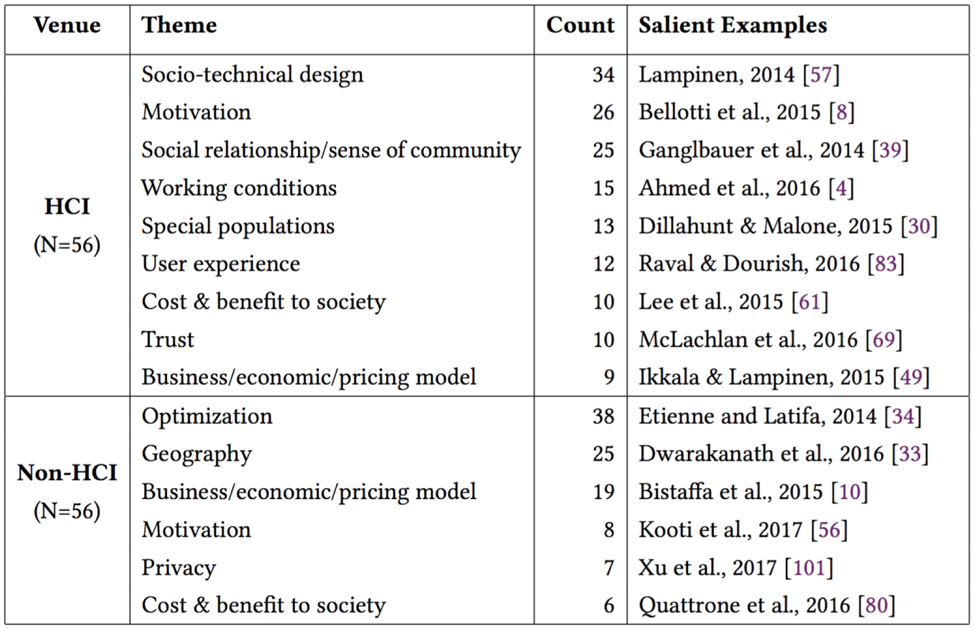As people flock to services like Airbnb, Uber, and TaskRabbit, the sharing economy has become a prominent research topic in Computer Science, especially in Human-Computer Interaction (HCI). As shown in the figure below, research on the sharing economy has almost doubled year by year, and seemed to start declining after 2015. Our study reviews the existing computing literature in this space and suggests where future efforts can go. [Link]
[Cross-posted from Xinyi’s blog]

Like Airbnb and Uber, many sharing services have gradually trickled into people’s lives in recent years. Some of them involve sharing rides (Lyft, Uber, BlaBlaCar), some mobilize the vacant rooms and space (Airbnb, Couchsurfing, WeWork), some facilitate the exchange of underutilized goods (Etsy, Craigslist), and some promote peer-to-peer services (TaskRabbit, UpWork). These sharing practices are collectively known as the “sharing economy”, with at least 17 companies reported to be worth more than $1 billion by the U.S. Department of Commerce.
What have we learned so far, and what problems are left to solve? With that question in mind, we conducted a systematic review on sharing economy in the computing literature. We want to summarize the computing community’s collective knowledge about this new form of economy, point out the blind spots of current research, and suggest future directions. After reviewing 112 papers published in ACM Digital Library between 2008 and 2017, here’s what we found.
Current computing research on the sharing economy seems to focus most heavily on three areas: optimization, the design of socio-technical systems, and users’ motivation. On the other hand, a few areas are much less under-explored in the literature: 1) topics related to the sharing of under-used assets before the rise of the sharing economy (e.g., carpooling, rickshaws, and timeshares); 2) safety; and 3) special contexts of sharing economy.
As HCI researchers, we also compared how the research from HCI and non-HCI computing differ in their research methods, questions, and themes (see Fig 2 & Fig 3). We see a general trend that the sharing economy literature in the ACM DL from HCI overwhelmingly use qualitative methods to answer descriptive research questions, whereas non-HCI research predominantly uses quantitative methods to tackle algorithmic problems. Causal and predictive research questions are few in number.


HCI and non-HCI venues also focus on different sets of themes, as shown in the table below. For example, while both researching Uber, non-HCI researchers tried to optimize the algorithm that matches passengers with idling drivers, while HCI researchers analyzed the design of the platform and how it induced the bias to certain geography or population.

Going forward, we highlight immediate opportunities for some areas of research. We hope to see more work that confirms whether environmental savings exist with sharing economy services rather than accepting claims of environmental benefits. We look forward to more work that incorporates knowledge from pre-sharing economy analogous contexts so that we can learn from historical sharing platforms when sharing economy enters new domains. There is also a need for exploration for more diverse physical and geographic contexts, especially when current research has identified that geographic factors can cause geographic biases against certain demographics. We encourage more scholars to promote optimizations that are predominantly human-centered rather than focus on efficiency.
Want more details? Check out our CSCW 2018 paper here! [Link]